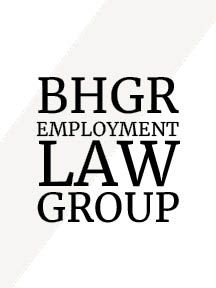We’ve got the POWR … Act [Part 2]
By BHGR Law Employment Group - Berg Hill Greenleaf Ruscitti LLP —
Effective August 7, 2023, the Protecting Opportunities and Workers’ Rights Act, also known as the POWR Act, took effect in the State of Colorado. This Act resulted in some big changes to Colorado’s employment law and how the law governs employment discrimination practices and claims, nondisclosure agreements, and employer recordkeeping. To close out this two-part series, we will be covering nondisclosure agreements and recordkeeping requirements. If you missed part one, where we cover employment discrimination and unfair work practices and claims, be sure to read part one of this series in the January edition or at www.bizwest.com.
POWR voids all new nondisclosure agreements as well as nondisclosure agreements renewed after August 7, 2023, that limit an employee’s or prospective employee’s ability to discuss or disclose discriminatory or unfair employment practices. Employers who seek to enforce non-compliant nondisclosure agreements may be liable for damages in the amount of $5,000 per violation as well as punitive damages, attorney’s fees, and costs.
POWR changes employer recordkeeping requirements. Employers are now required to maintain personnel and employment records for at least five years and to maintain complaints of discriminatory or unfair employment practices in a designated repository. This includes records of all written and oral complaints of discriminatory or unfair employment practices. The record must contain the date of the complaint, the complaining individual’s name (unless made anonymously), the alleged perpetrator’s name, and the substance of the complaint. These records are considered personnel records.
All employers should update their employee handbooks and personnel policies to address these changes. Employers should also review and revise the language used in all new and renewed nondisclosure agreements and implement POWR’s recordkeeping requirements. BHGR’s employment attorneys are happy to assist you in these compliance efforts or to answer any questions you may have about POWR.
This article is informational only. The presentation or use of this information does not in any manner constitute an attorney-client relationship between BHGR and the website user. While the information on this site concerns legal issues, it is not intended as legal advice or a substitute for particularized advice from your own legal counsel.
In a follow-up to part one, the BHGR Employment Group dives into the additional “must knows” regarding the POWR Act. Learn more about how this act governs employers and their use of nondisclosure agreements, and employee recordkeeping.


![Thought Leaders: A Summary Explaining the Colorado Legislative Session – [Part 2] image](https://s39845.pcdn.co/wp-content/uploads/2024/03/BHGR_red.png)
![We’ve got the POWR … Act [Part 1] image](https://s39845.pcdn.co/wp-content/uploads/2024/02/BHGR_Law_horizontal.jpg.optimal.jpg)